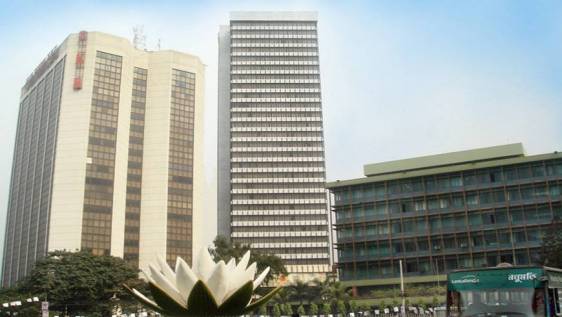Bangladesh Bank has asked all the banks to reduce their lending rates to increase credit growth in the industrial sector as the money market awash with huge liquidity.
The central bank came up with the suggestion at a bankers' meeting held yesterday at its headquarters in the capital with Governor Atiur Rahman in the chair. Senior executives of Bangladesh Bank and, chief executive officers and managing directors of different banks were present at the meeting.
The country's banks have been advised to increase their respective credit growth by disbursing their loans progressively instead of aggressively.
The lending rate of some banks is still higher, which is not expected as the market has enough liquidity, Bangladesh Bank Deputy Governor SK Sur Chowdhury told reporters after the meeting.
“Interest rate on loans should go down to compete in the market as foreign loan inflow increased significantly due to lower interest rates,” he said. “We have allowed foreign loan in the local market to make the market more competitive so the country's banks reduce their lending rates,'' he said.
The central bank has warned all the banks to maintain the banking norms as spread of many banks went above 5% recently. It is not possible to solve the crisis just by issuing circulars, he added.
Monthly average interest rate spread for all banks crossed the desired level of 5% and stood at the highest of 16 months in May due to cut deposit rates more than interest rate, according to Bangladesh Bank data.
The interest rate spread, measured as the difference between monthly weighted average rate of advances and deposits went up to 5.22% in May by increasing 0.23% from 4.99% in January.
The spread was 5.33% in December 2012 with high interest rate 13.8% and deposit rate 8.47%. Then, it remained between the range of 4.95% to 5.15% in last one and half years due to efforts made by Bangladesh Bank.
Banks have been asked to bring down their capital market exposure to 25% limit of the capital.
“Most of the banks, excluding 15 banks, comply with the new rules. We have asked rest of the banks to submit their time plan to reduce their excess exposure within July 21, 2016,”said SK Sur.
He also said we had asked those banks to go with the investment in the capital market, who have already reduced their exposure below the limit.
The central bank strongly warned the Sonali Bank to settle the accepted bills with other banks relating Hallmark scam as the state-owned bank failed to fulfill its own commitment.
It also phased out time for Sonali Bank to settle the 1,756 bills within September 2016. The central bank will take legal action if the bank fails to settle the bills during the given period, he said.
As non-performing loans (NPL) management is the biggest challenge for the banking sector, we have requested all the bankers to keep the NPL under control in future and the central bank also assured us of giving support to reduce it, Ali Reza Iftekhar, president of Association of Bankers Bangladesh (ABB).
News:Dhaka Tribune/22-July-2014



 ‘Interest rate on loans should go down to compete in the market as foreign loan inflow increased significantly due to lower interest rates’
‘Interest rate on loans should go down to compete in the market as foreign loan inflow increased significantly due to lower interest rates’ H1 credit growth target to remain at the same level of last half at 16.5% as the central bank unveils monetary policy statement early next week
H1 credit growth target to remain at the same level of last half at 16.5% as the central bank unveils monetary policy statement early next week Taher Ahmed Chowdhury, Head of Information and Communication Technology Division of
Taher Ahmed Chowdhury, Head of Information and Communication Technology Division of